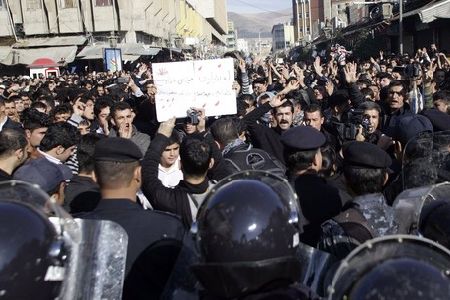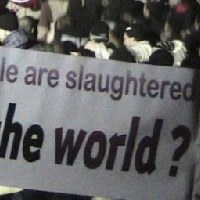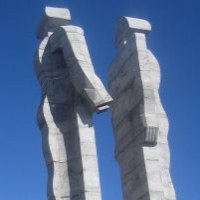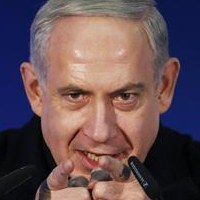![]()
Fri, Aug 12, 2011 | Middle East Forum | The Daily Star | by Aymenn Jawad Al-Tamimi
Spring comes, but not for Iraq’s Kurds
Amid widespread protests during this so-called “Arab Spring,” one place that has received relatively little media coverage is Iraqi Kurdistan. How does the response of the Kurdish authorities to discontent there, a region long held up by foreign observers as a freer political exception in Iraq, compare with that of other governments in the Middle East?
The grievances of the protesters, who first came out in mid-February to hold rallies in the autonomous region’s economic hub of Sulaimaniyah, are varied, but in many ways they are similar to those of activists still taking part in gatherings in Baghdad’s Tahrir Square. There have been complaints of corruption, unemployment, poor public services (despite the generally higher living standard compared to the rest of Iraq), and the monopolization of power by the ruling coalition of the Kurdistan Democratic Party and the Patriotic Union of Kurdistan. These two parties have dominated the Kurdistan Regional Government since Iraqi Kurdistan gained autonomy after the Gulf war of 1991.
When protests began in Saray Square in Sulaimaniyah, the Kurdish security forces opened fire to disperse the crowds, leading to the death of a 15-year old boy and leaving 50 injured. This confrontation intensified the anger of the protesters, who demanded an apology from the KRG for allowing the firing on demonstrators.
At the same time, supporters of the KRG president, Massoud Barzani, attacked offices of the main opposition bloc, Goran (the Change List), in Irbil, the regional capital, as well as in Dohuk and other towns. The wave of protests spread to these towns toward the end of that month. Goran’s KNN television station was banned from broadcasting.
By mid-March, the ruling coalition began to feel pressure from the increasing restlessness of the protesters. Amid calls by the opposition for early elections and a boycott of the KRG, the coalition publicly promised reform and a desire to listen to the protest movement’s grievances. Barzani affirmed that he would issue a seven-point reform program and promised early elections and legal action against members of the security forces who had shot at protesters.
However, one month later, the KRG authorities had grown tired of the ongoing protests. They ordered the security forces, anti-riot police, and Peshmerga militiamen to enter Saray Square and clear out the demonstrators, some of whom had spent 60 days at the site. The Governorate of Sulaimaniyah prohibited “unlicensed demonstrations” and the KRG cut the budgets of all opposition parties, accusing the opposition, on the basis of flimsy evidence, of conspiring with Iran’s Revolutionary Guards to incite the protests.
Thus, by the beginning of May, the protests were finished, stamped out by authoritarian measures not so very unlike those of other governments in the Middle East and North Africa. Some observers who had upheld Iraqi Kurdistan as a model for a more liberal-democratic government in Iraq expressed to me their disappointment over how the KRG had failed to live up to the consensus image of Iraqi Kurdistan as a “different” sort of Iraq. They hoped that the behavior of the KRG was only an aberration.
Sadly, the evidence suggests otherwise. The proposed reforms by the KRG have not actually been implemented, and in May the opposition parties were reduced to holding meaningless power-sharing talks with the KRG. After four rounds of dialogue, and despite a recent speech by the French Consul in Irbil that highlighted the need for radical reform in the governing system, negotiations have now broken down because of the obstinacy of the KDP and the PUK. In the absence of outside pressure, the Kurdish authorities have felt no need to undertake reform beyond minor shifts and rotations in administrative positions.
In addition, over the past month, human rights groups such as Amnesty International have raised concerns over attacks against lawyers who have campaigned on behalf of those protesters who were killed or injured in the unrest. In a similar vein, Reporters Without Borders has documented incidents of attacks by police officers and members of the security forces against journalists and cameramen who attempted to cover efforts to revive the protests in Sulaimaniyah.
These efforts began on July 14 when a Facebook group called for a fresh round of demonstrations beginning the following day. But the planned gatherings were pre-emptively suppressed. As Joel Wing of the blog Musings on Iraq notes, the security forces were deployed at checkpoints all around Sulaimaniyah, with a particular focus on Saray Square. Ten activists were arrested before protests could commence.
Ultimately, moving Iraqi Kurdistan in a more liberal and democratic direction depends on the willpower of the KRG ruling coalition to listen to the legitimate complaints and demands of the wider Kurdish population and opposition. However, more attention is desperately needed from both international media and foreign governments to push the Kurdish leadership to embrace reform.
After all, the portrayal of Iraqi Kurdistan as the “other Iraq” has largely been cultivated by prominent outlets such as The New York Times and the BBC; and yet both have given the KRG a free pass during the current political and civil turmoil. Likewise, Western governments in particular need to look at developments inside Iraqi Kurdistan, and look beyond their economic and strategic interests. To this end, the speech by the French consul in Irbil was a welcome, if still incomplete, start.
Aymenn Jawad al-Tamimi is a student at Oxford University and an intern at the Middle East Forum.



 RSS
RSS











Spring comes, but not for Iraq’s #Kurds | #Iraq http://bit.ly/oI8lNB
Gb SIMI: Spring comes, but not for Iraq's Kurds | Middle East news …: Amid calls by the opposition for early e… http://t.co/2nZGoMp
Spring comes, but not for Iraq’s #Kurds | #Iraq http://bit.ly/oI8lNB